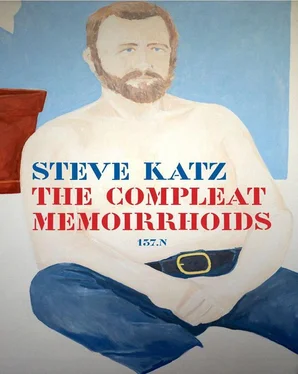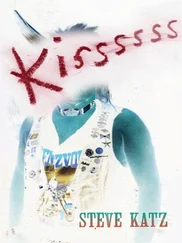2
Two summers later, in 1988, my mother died. Sybil had already receded into my past. I was staying in the old MacDonald house I had bought on Foot Cape Road, outside of Inverness, in Cape Breton. I couldn’t afford to fix it up. I was too broke to get a phone. Richard Serra let me use his number for emergency calls. He took the call about my mother, and drove down the road to my house to pass on the news. “I know how hard it is to lose your mother,” he said. I could feel genuine kindness and compassion from him, and have always appreciated that, through all the difficulties that came from trying to be his friend. It took me two days to get to my mother’s apartment on Broadway. This was the first time I’d ever arrived without breadsticks. The room was ripe with tragedy, the bedclothes rumpled, her beloved plants wilting. Carpet was strewn with medical rubbish, some of it bloody from the violent attempts to revive her. I felt in the room how tight her grip was, holding on to death.
After a modest, dignified memorial service at my sister’s house near Nyack, Michael, my nephew, and two of my sons, Nikolai and Rafael, drove into Washington Heights to carry out my mother’s final wishes. At the Manhattan entrance to the bridge walkways we found ourselves in the midst of a crowd of people bouncing and jumping in sweats, or shorts and wife-beaters. We were dressed in casual mourning gear. We noticed no vehicle traffic on the upper tier of the bridge. We hadn’t accounted for the New York Marathon that started then on the New Jersey end of the bridge. I clutched the can of mom’s ashes tightly in the crook of my arm. Sally Katz had hardly left her room for the last fifteen years, and during that time had never gone out into the midst of this much excitement. We went ahead with the plan. Each of us wet a finger and held it up to judge the wind direction. We didn’t want “Nanny” blown back in our faces. The south walkway looked to be the safest. People lined the way all along, anticipating the marathon. We were on a different mission.
Sally Katz’ remains rattled in a large number ten can. There was some bone left inside. I carried the can. One of the boys carried the rose. This was illegal, and my mother had known it would be. She might have enjoyed these illicit moves that turned her wish into some clandestine ritual embedded in the coincidence of the celebration of the New York Marathon. I pulled out my pocketknife as we got halfway across the bridge, at the border between New York and New Jersey, and started to pry the cover of the can. Frank Shorter led a host of marathoners on the roadway past us in an orgy of fitness. They were serious. So were we. After a few furtive glances to see if any cops were near, we let my mother, their grandmother, out of the can. Shiny puffs of herself wafted down like her ghost liberated into the great river. Then we loosed her single red rose. We all remarked that we could watch Sally Katz for a long time as a streak of grey that elongated with the current and stretched downstream. The rose was a dark punctuation. The last bit I dumped blew back in our faces. When the rumor circulated that Keith Richards had snorted the ashes of his father, I recalled that I had inhaled a bit of my mother. The day had been quite beautiful and the marathon looked exhilarating, but breathing in Sally Katz’ ashes did not produce a significant high.
I inherited the apartment on Morton Street from Richard Kalvar, who was a student at Cornell when I brought my family back from Italy to take a job teaching in Ithaca. When I left Cornell we moved the family to Pine Bush, to be closer to the city, to allow me to take adjunct positions at Brooklyn and Queens colleges. I needed to be closer to the art and publishing scenes. The apartment was a six floor walkup. For three or four days a week I bused into the city to teach and live my city life. Kalvar morphed into a photographer and left New York for Paris where he lives today. Cornell arts and architecture had a gaggle of enormously talented people, who suffered a variety of sad successes and wicked fates — Gordon Matta, Alan Saret, Susan Rothenberg, Mary Woronov, Donald Evans, Joel Perlman, Stephen Gottlieb. Gottlieb spearheaded, with the help of some of these young artists, a letterpress, hand-printed edition of my first book of poems, The Weight Of Antony . It was flattering then, even moreso in retrospect.
I sallied out into the streets from that apartment sometimes to grab a slice of pizza, or a cappuccino and a millefoglie , and then I’d meander into the evening, reluctant to climb back up the six flights. Bright thoughts, dreary thoughts, I’d stroll, wondering who I was and what was expected of me with a novel published by a major publishing house, and another book coming out with a different major publishing house. New York streets can be debilitating at the same time as they are empowering. The anonymity keeps you honest with yourself. Nobody is anybody on the street. And as the great poet John Godfrey, once said, “You don’t have to figure out what’s bothering you in New York. All you have to do is open the door of your apartment.” Artistic ambition lies as a pall of sweat on all the wannabes. The yearning for recognition seeps up as an odor through the cracks in the sidewalk. Otis Redding’s melancholy “Happy Song” is as hopeful as it gets. Dum dum diddee dee da dum. There is no measure of success that can meet the need. I couldn’t account for the melancholy that squatted in my heart. Was failure inevitable, even with these whittlings of success? Maybe it was the war, the Vietnam deluge that defiled everything in America.
I wandered into The Seventh Circle to grab a beer. The affable Christopher Cerf, my editor at Random House, was drinking there with a gaggle of Harvard buddies. They might have been his friends from the National Lampoon. He hailed me and invited me to join them. They were celebrating the publication of his jolly book, The Biggest Cheese On Earth . I was barely treading water in Lake Gloom, must have looked like the character from Al Capp’s Li’lAbner , who drags a dark cloud over his head wherever he goes. I couldn’t enter their clubby space. I knew it was a bad practice to run away, bad PR not to sell yourself whenever you have the chance. But my mood was too dark, my needs too great, though I couldn’t say what I needed. They were a congenial group, an influential bunch. All I had to do was make them laugh once, a joke, a small bright bubble of mirth from me, and that might have made all the difference.
Too many writers and journalists of the drinking profession hung out at the Lion’s Head. I couldn’t often go in there, but I did stop frequently at the Seventh Avenue bar where I’d run into Michael Herr, back between assignments for Esquire in Vietnam, from which he assembled his great Vietnam war book, Dispatches . He was the first to write about rock and roll in the war zones, troops getting stoned to Jimi Hendrix, and heading out on suicidal patrols, plugged in to the Beach Boys. Often Rudy Wurlitzer was there, feeling big success from his scripts for Two Lane Blacktop , and Pat Garrett and Billy The Kid . We conspired with each other to be bummed as possible. Pitiful and disingenuous as this sounds, it was a manifestation of the feeling in the city in the country in the world laid down with the shroud of brutality and meanness that was the Vietnam war, the stupid violence and the sense that we were all being conned into this travesty by whoever profited from it. Michael, however, was on a different ride. A most gripping aspect of his writing was his grappling with guilt at his pleasures of being in Vietnam. He mumbled about it over his Bushmill’s. When he was in New York he always got antsy for his ticket to return. Being in New York brought him down. He wanted back to Saigon, where he moved with the troops, lived on the edge. He enjoyed there the titillation of packing a gun, and assuming the license to kill someone if he needed, or just wanted to. He liked that power even if he never used it, and that pleasure made him feel weird. Vietnam was his drug of choice.
Читать дальше












